“The secret of the lives of the saints is familiarity and confidence with God”
Full text of the Holy Father's catechesis
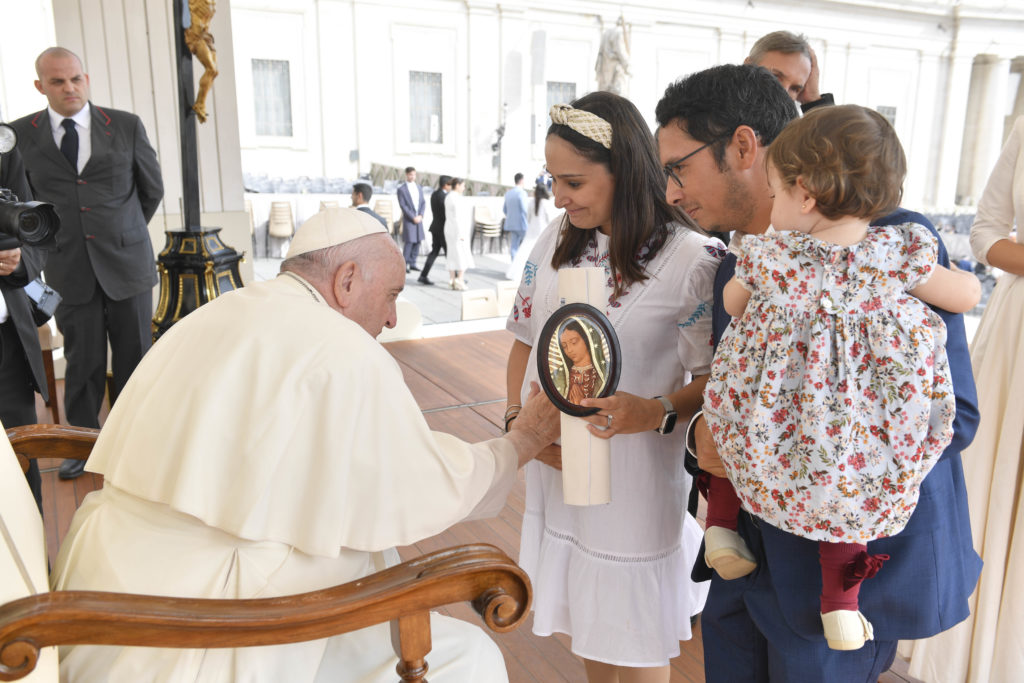
This morning’s General Audience takes place at 9 a.m. in St. Peter’s Square, where the Holy Father Francis meets with groups of pilgrims and faithful from Italy and from all over the world.
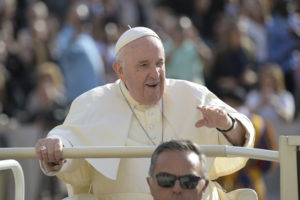 In his address in Italian, the Pope, resuming the new cycle of catechesis on Discernment, focuses his meditation on the theme: “The elements of discernment. The familiarity with the Lord” (Reading: Eph 5:15, 17-20).
In his address in Italian, the Pope, resuming the new cycle of catechesis on Discernment, focuses his meditation on the theme: “The elements of discernment. The familiarity with the Lord” (Reading: Eph 5:15, 17-20).
After summarising His catechesis in the different languages, the Holy Father addressed special expressions of greeting to the faithful present.
The General Audience concludes with the recitation of the Pater Noster and the Apostolic Blessing.
Catechesis On Discernment: 3. The elements of discernment. Familiarity with the Lord
Dear brothers and sisters, good morning!
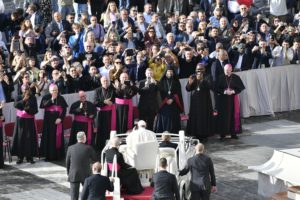 We resume our catecheses on the theme of discernment — because the theme of discernment is very important in order to know what is going on within us, to know about our feelings and ideas, we have to discern where they come from, where they lead me, to what decisions — and today we focus on the first of its constituent elements, which is prayer. To discern we need to be in an environment, in a state of prayer.
We resume our catecheses on the theme of discernment — because the theme of discernment is very important in order to know what is going on within us, to know about our feelings and ideas, we have to discern where they come from, where they lead me, to what decisions — and today we focus on the first of its constituent elements, which is prayer. To discern we need to be in an environment, in a state of prayer.
Prayer is an indispensable aid for spiritual discernment, especially when it involves the affective dimension, enabling us to address God with simplicity and familiarity, as one would speak to a friend. It is knowing how to go beyond thoughts, to enter into intimacy with the Lord, with an affectionate spontaneity. The secret of the lives of the saints is familiarity and confidence with God, which grows in them and makes it ever easier to recognize what is pleasing to Him. True prayer is familiarity with and confidence in God. It is not reciting prayers like a parrot, blah, blah, blah, no. True prayer is this spontaneity and affection for the Lord. This familiarity overcomes fear or doubt that His will is not for our good, a temptation that sometimes runs through our thoughts and makes our heart restless and uncertain, or even bitter.
Discernment does not claim absolute certainty, it is not a chemically pure method, it does not claim absolute certainty, because it is about life, and life is not always logical, it has many aspects that cannot be enclosed in one category of thought. We would like to know precisely what should be done, yet even when it happens, we do not always act accordingly. How many times have we, too, had the experience described by the apostle Paul, who says: “For I do not do the good I want, but the evil I do not want” (Rom. 7:19). We are not just reason, we are not machines, it is not enough to be given instructions to carry them out: the obstacles, like the supports, to deciding for the Lord are primarily affective, from the heart.
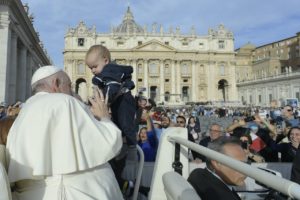 It is significant that the first miracle performed by Jesus in Mark’s Gospel is an exorcism (cf. 1:21-28). In the synagogue at Capernaum He delivers a man from the devil, freeing him from the false image of God that Satan has been suggesting since the beginning: that of a God who does not want our happiness. The possessed man in that passage of the Gospel knows that Jesus is God, but this does not lead him to believe in Him. In fact, he says, “You have come to ruin us” (v. 24).
It is significant that the first miracle performed by Jesus in Mark’s Gospel is an exorcism (cf. 1:21-28). In the synagogue at Capernaum He delivers a man from the devil, freeing him from the false image of God that Satan has been suggesting since the beginning: that of a God who does not want our happiness. The possessed man in that passage of the Gospel knows that Jesus is God, but this does not lead him to believe in Him. In fact, he says, “You have come to ruin us” (v. 24).
Many people, even Christians, think the same thing: that is, that Jesus may well be the Son of God, but they doubt that He wants our happiness; indeed, some fear that taking his proposal seriously, that which Jesus proposes to us, means ruining our lives, mortifying our desires, our strongest aspirations. These thoughts sometimes creep up inside us: that God asks too much of us, we fear that God asks too much of us, that He doesn’t really love us. Instead, in our first encounter we saw that the sign of meeting the Lord is joy. When I encounter the Lord in prayer, I become joyful. Each one of us becomes joyful, a beautiful thing. Sadness, or fear, on the other hand, are signs of distance from God: “If you would enter life, keep the commandments,” Jesus says to the rich young man (Mt 19:17). Unfortunately for that young man, some obstacles did not allow him to implement the desire in his heart to follow the “good teacher” more closely. He was an interested, enterprising young man, he had taken the initiative to meet Jesus, but he was also very divided in his affections, for him riches were too important. Jesus does not force him to make up his mind, but the text notes that the young man turns away from Jesus “sad” (v. 22). Those who turn away from the Lord are never happy, even though they have an abundance of possessions and possibilities at their disposal. Jesus never forces you to follow Him, never. Jesus lets you know His will, with all His heart He lets you know things, but He leaves you free. And this is the most beautiful thing about prayer with Jesus: the freedom that He allows you. On the other hand, when we distance ourselves from the Lord, we are left with something sad, something ugly in our heart.
Discerning what is happening within us is not easy, for appearances are deceptive, but familiarity with God can melt doubts and fears in a gentle way, making our lives increasingly receptive to His “gentle light,” according to the beautiful expression of Saint John Henry Newman. The saints shine with reflected light and show in the simple gestures of their day the loving presence of God, who makes the impossible possible. It is said that two spouses who have lived together for so long loving each other end up resembling each other. Something similar can be said about affective prayer: in a gradual but effective way it makes us more and more able to recognize what counts through connaturality, as something that springs from the depths of our being. To be in prayer does not mean saying words, words, no: being in prayer means opening my heart to Jesus, drawing close to Jesus, allowing Jesus to enter into my heart and making us feel His presence. And there we can discern when it is Jesus and when it is us with our thoughts, that so many times are far from what Jesus wants.
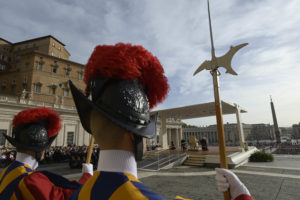 Let us ask for this grace: to live a relationship of friendship with the Lord, as a friend speaks to a friend (cf. St. Ignatius of Loyola, Spiritual Exercises, 53). I knew an old religious brother who was the doorman of a boarding school, and every time he could he would approach the chapel, look at the altar, and say, “Hello,” because he was close to Jesus. He didn’t need to say blah blah blah, no: “Hello, I am close to you and you are close to me.” This is the relationship we must have in prayer: closeness, affective closeness, as brothers and sisters, closeness with Jesus. A smile, a simple gesture, and not reciting words that do not reach the heart. As I said, talk to Jesus as a friend talks to another friend. It is a grace we must ask for one another: to see Jesus as our friend, as our greatest friend, our faithful friend, who does not blackmail, above all who never abandons us, even when we turn away from Him. He remains at the door of our heart. “No, with you I don’t want to know anything,” we say. And He remains silent, He remains close at hand, at heart’s reach because He is always faithful. Let us go forward with this prayer, we could say the prayer of “Ciao,” the prayer of greeting the Lord with our heart, the prayer of affection, the prayer of closeness, with few words but with acts and good works. Thank you.
Let us ask for this grace: to live a relationship of friendship with the Lord, as a friend speaks to a friend (cf. St. Ignatius of Loyola, Spiritual Exercises, 53). I knew an old religious brother who was the doorman of a boarding school, and every time he could he would approach the chapel, look at the altar, and say, “Hello,” because he was close to Jesus. He didn’t need to say blah blah blah, no: “Hello, I am close to you and you are close to me.” This is the relationship we must have in prayer: closeness, affective closeness, as brothers and sisters, closeness with Jesus. A smile, a simple gesture, and not reciting words that do not reach the heart. As I said, talk to Jesus as a friend talks to another friend. It is a grace we must ask for one another: to see Jesus as our friend, as our greatest friend, our faithful friend, who does not blackmail, above all who never abandons us, even when we turn away from Him. He remains at the door of our heart. “No, with you I don’t want to know anything,” we say. And He remains silent, He remains close at hand, at heart’s reach because He is always faithful. Let us go forward with this prayer, we could say the prayer of “Ciao,” the prayer of greeting the Lord with our heart, the prayer of affection, the prayer of closeness, with few words but with acts and good works. Thank you.
____________________________________________________
Special Greetings
I greet the English-speaking pilgrims taking part in today’s Audience, especially those from Denmark, Ghana, the Philippines, Canada and the United States of America. I offer a cordial greeting to the numerous student groups present, and in particular the diaconate class of the Pontifical North American College and their families. Upon all of you I invoke the joy and peace of Christ our Lord. God bless you!
I extend a cordial greeting to the Italian-speaking pilgrims. In particular, I greet the faithful of Parete and Battipaglia, hoping that, with the commitment of all, the religious fervour of their respective parish communities will grow.
And then a thought for the tormented Ukraine, which is suffering so much, that poor people so cruelly tried. This morning I was able to speak with Cardinal Krajewski, who was on his way back from Ukraine and he told me about terrible things. Let us think of Ukraine and pray for this tormented people.
Finally, my thoughts go, as usual, to the young, the sick, the elderly and the newlyweds. May the feast of the Archangels Michael, Gabriel, and Raphael, which we will celebrate tomorrow, inspire in everyone a sincere adherence to the divine plans. May you recognise and follow the voice of your inner Master, who speaks in the secret of your conscience. We also pray for the Vatican Gendarmerie Corps, which has St Michael the Archangel as its patron and celebrates him after tomorrow. May they always follow the example of the holy Archangel and may the Lord bless them for all the good they do.
My blessing to all.
_________________________________________
Summary of the Holy Father’s words
Dear brothers and sisters: In our continuing catechesis on discernment, the process of making sound decisions about the God-given meaning and direction of our lives, we now consider the importance of prayer. Praying is never a purely intellectual exercise; it also engages the heart and the emotions. Through prayer, we deepen our friendship with the Lord; we grow in trust as we realize that, in coming to understand and embrace his holy will, we find our true happiness. One of the great temptations in the spiritual life is the fear that fidelity to God’s will can make us sad or unfulfilled. Prayer helps us to overcome such empty fears, and brings instead a deep spiritual joy, even in the midst of trials and tribulations. As the fruit of prayer, discernment makes us sensitive to God’s “kindly light”, illuminating our minds and warming our hearts. Drawing each day closer to the Lord, we come, by a certain “connaturality”, to recognize more fully his will for our lives, and in that will to find our peace and our authentic fulfilment.
Related
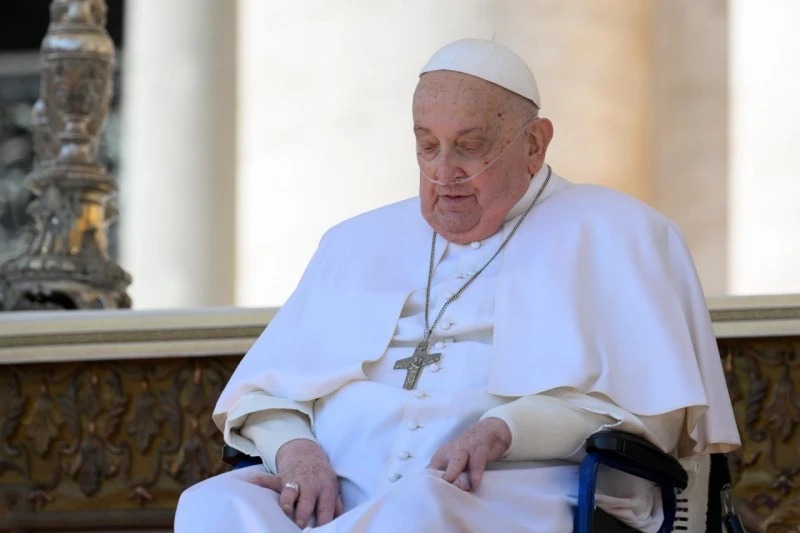
Pope Francis’ Catechesis: God always comes to find us!
Exaudi Staff
17 April, 2025
5 min
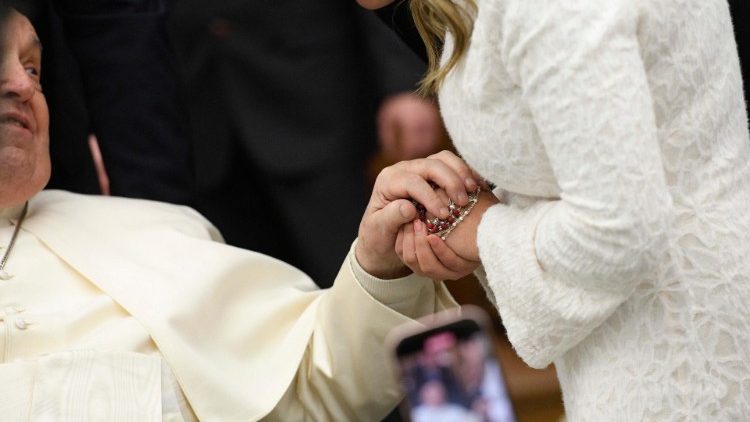
Francis calls for facilitating faith travel: “Young people and families cannot be left behind”
Exaudi Staff
17 April, 2025
1 min
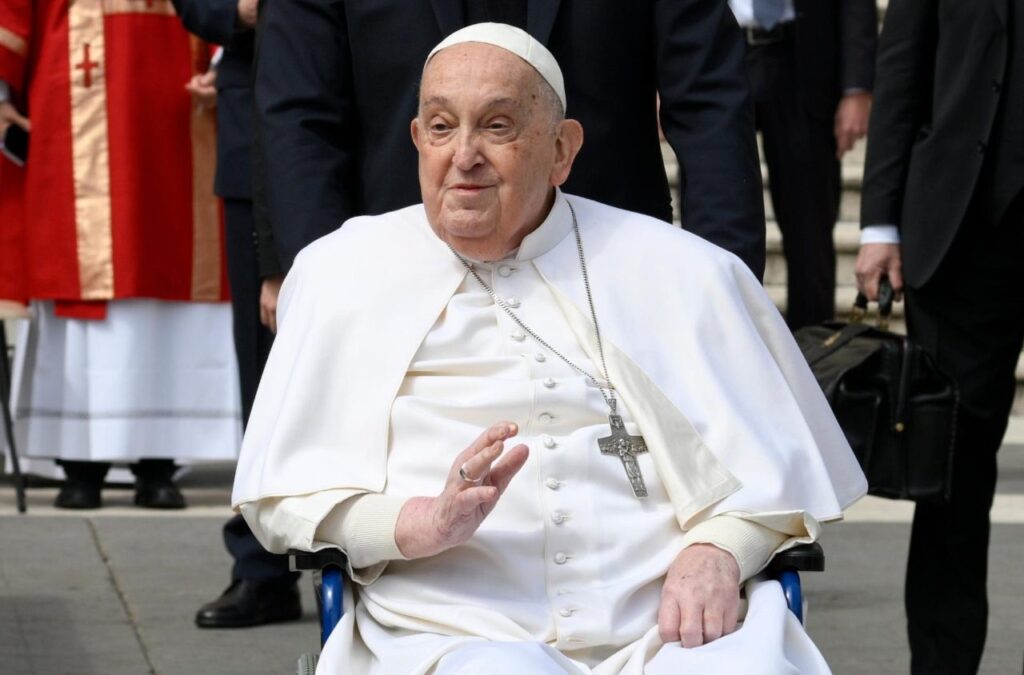
Pope Francis in active recovery: preparing the meditations for the Stations of the Cross while delegating the liturgies of the Triduum
Exaudi Staff
16 April, 2025
2 min

Francis Promotes Spiritual and Pastoral Renewal in Vatican Diplomacy
Exaudi Staff
16 April, 2025
8 min
 (EN)
(EN)
 (ES)
(ES)
 (IT)
(IT)

